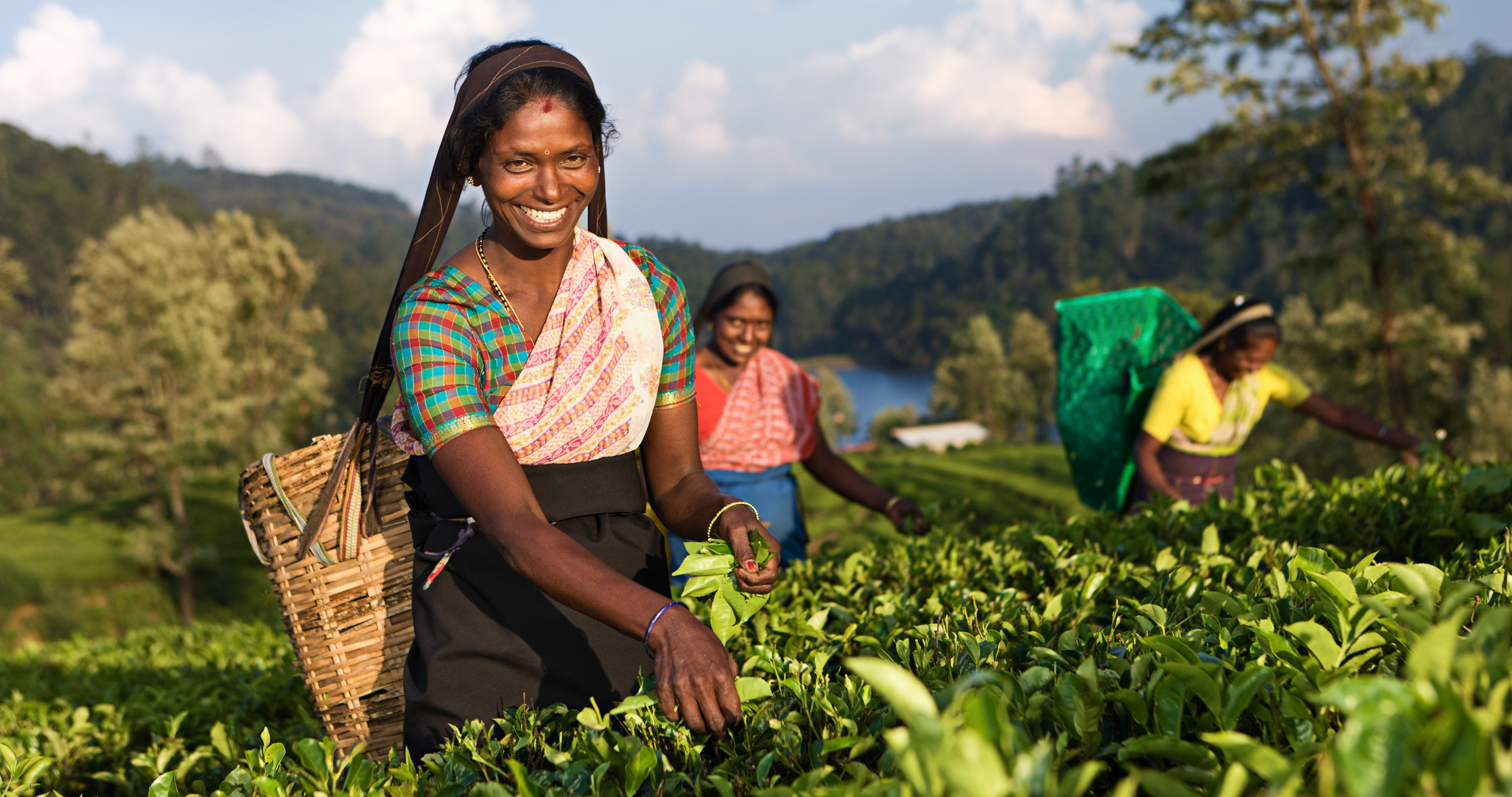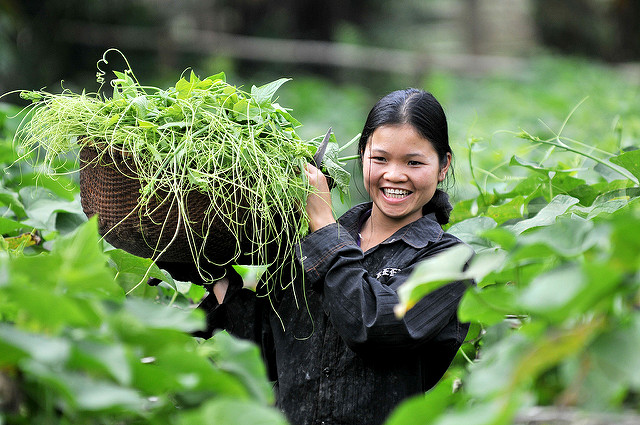
Can Businesses Benefit from Empowering Workers and Promoting Gender Equity in Agricultural Workplaces?
Media Contact
By Shelley Martin and Connor Roth, ICRW Advisors
![]()
The future of agribusiness comes with new social and environmental challenges, including a decline in traditional labor force, alongside increased demand for agricultural products while availability of arable land decreases and the pace of climate change accelerates. To adapt, the sector must strategically invest in a long-term workforce that can innovate, enhance value chains, and transition to more regenerative than extractive practices.
Although not always recognized or rewarded, permanent and seasonal workers deliver significant value for agricultural workplaces. As men continue to leave for more lucrative industries, an increasing share of this labor force is women, who often have less access to professional training or advancement opportunities. Compared to men, women face a tide of inequities in agriculture. As workers on farms and in packhouses, they experience greater constraints to their productivity and wellness, such as harassment and safety risks, lack of transportation and child care, ill-fitting Personal Protective Equipment (PPE), inadequate sanitation infrastructure, and pay inequity.

Ensuring women are well-integrated is strategic for growers and buyers looking to the future of supply. Employing women leaders across the value chain can reduce management and coordination costs for agribusinesses. Women in management positions have been found to improve communications between companies and suppliers, including resolving disputes and soliciting vital feedback at the community level. Smallholder management committees led by women may also represent the interests of a diverse farmer base more accurately than committees led by men alone, as women liaisons have been shown to maintain and share information more readily with buyers than men in the same role. In addition, supporting women to become effective trainers and recruitment agents addresses social contact and communication barriers occurring when training roles are only held by men. Employing women as trainers can develop a wider labor pool that includes more women, reducing time-sensitive labor constraints and variability in production, as well as supporting more consistent operations and supply.
Growing the number of women in the sector has additional benefits for the environment. Targeting women in agronomic trainings is proven to increase the likelihood that a particular climate resilient practice is widely adopted. If gender is not explicitly considered, innovations are “unlikely to be effective, let alone equitable or transformative.” Productivity, adaptation, and mitigation efforts can only reach scale by harnessing women’s key roles in communicating knowledge and mobilizing others.
Equitable value chains also lessen gender tensions in other spaces, leading to joint empowerment for employers and workers, wives and husbands, and other market relationships in agricultural economies. Management consideration of farm worker voice can help retain workers and their skills, while egalitarian decision-making in farming households can increase investments in agriculture, improve food security for rural communities, and produce better social and economic development outcomes for whole societies. Further, women are hidden influencers in agribusiness, responsible for many back-end roles that directly enable outgrower contracts, as well as diverse economic activities beyond cash crop production that support the health of agricultural communities.
Food and beverage companies can promote these shifts in their supply chains by supporting their supplier organizations to invest in women, for instance through (1) gender-responsive agronomic training that reaches and benefits women along with men; (2) targeted empowerment programs for women that span topics from personal agency and health to financial literacy and leadership skills; and (3) approaches that strengthen the gender capacity of supplier management, from their attitudes to their policies and infrastructure on site. Holistic interventions can result in women’s empowerment outcomes as well as wider supply chain benefits.
Business Benefits of Gender-Responsive Worker Empowerment Programs
Empowered workers empower workplaces. By building key workplace skills in workers and committing to a work environment that supports women and men equitably, firms can establish a foundation of talent and worker wellbeing that ultimately leads to better performance.
Emerging evidence in diverse value chains reveals a range of business and social benefits from empowering women workers and supporting management to address gendered risks and inequities:
-

Photo credit: Neil Palmer (CIAT) via Creative Commons Women’s workplace education program P.A.C.E. found a 10% increase in participants’ ability to arrive on time for work.
- International Labour Organization’s (ILO) Better Work found that improved working conditions and gender equity in factories generated up to 22% increase in productivity and 25% increase in profitability.
- Using gender-smart solutions such as financial literacy courses and job opportunities for women in previously men-dominated roles, IFC supported SolTuna processing plant to reduce absenteeism and save $166,000 a year in additional staffing and overtime costs.
- The Evidence Project found that worker health initiatives focused on women have reduced annual turnover rates from 15% to 3% and decreased absenteeism among working mothers by 50%.
- ICRW and BSR researched global manufacturers and found that equitable workplaces are more efficient, reporting higher levels of accuracy and up to a 22% decrease in the number of rejected products.
- Reproductive health programming with workers has been shown to improve family planning and delay marriage, reducing the likelihood of turnover as more women stay in the workforce.
Gender-Responsive Workplace Training for Managers
Eliciting buy-in and developing champions in agribusiness leadership is a critical first step to an effective worker empowerment program. For agribusiness managers to take interest and effectively motivate staff, they must understand key issues women workers face and how these affect production, including risk mitigation and potential value creation. As leaders grow more aware of the benefits, they can begin investing equitably in workers’ skills and fostering positive working environments that incorporate worker voice into initiatives. Capacity strengthening initiatives that address equity in both “supply” (women laborers) and “demand” (their employers) have led to higher communication between workers and managers, improved worker satisfaction and retention, increased skills and productivity, and ultimately better financial performance for the firm.
Business benefits from providing gender-sensitive managerial training and promoting worker voice are well documented:
- Factory data following Better Work’s supervisor training revealed that training on improved supervisory practices led to a 22% increase in average productivity.
- Supervisors receiving Women in Factories training had a 17% greater chance of receiving advanced warning of a worker’s absence compared to an untrained supervisor.
- Following participation in USAID’s Engendering Industries program, 5 partner organizations reported the gender equality initiatives leading to improved reputation.
- Better Work’s gender equitable factory interventions increased average profitability of participating companies by 25%.
Though strengthening gender equity in agribusinesses presents operational challenges as a less regulated and more informal sector than manufacturing or services, there are lessons to apply in empowering farm or firm workers and their employers together. Through the USAID-PepsiCo Global Development Alliance (GDA) implemented by Resonance and ICRW, ICRW Advisors is cross-pollinating ICRW’s evidence base on women’s empowerment in communities and the world of work to co-design and support delivery of complementary gender-smart programming in the global PepsiCo supply chain, including agribusiness leadership teams and their workforces.
This initiative harmonizes promising approaches from the development sector and more advanced commercial industries. Pilots are adapting programming to fit unique agricultural markets by addressing key supports women workers need to thrive at full potential. The GDA is a five-year $20M partnership that will test the effectiveness of “gender-smart farm” programming on worker wellbeing and agribusiness performance, and measure other benefits on resilience in the wider supply chain.
About the Authors
Shelley Martin is a Gender and Business Advisor at ICRW, where her work focuses on value chains, gender-smart investing and equity at work. She has conducted social and business impact evaluations, researched and written technical reports, and designed practical tools to help start-ups, corporations, and public institutions leverage gender intelligence across portfolios and industries (e.g. garment and manufacturing, agriculture, clean energy, STEM and infrastructure). Prior to joining ICRW Advisors, she was a Gender Inclusion Specialist with Value for Women, where she worked with the World Bank, DfID, ILO and other agencies and impact investors to research and build evidence on the economic and business case for expanding women’s participation and leadership. FULL BIO
Connor Roth is a Research and Programs Associate at ICRW, with five years of experience working on gender, sexuality, and global health issues. Based out of the ICRW-US office, she focuses on projects surrounding women’s economic empowerment, gender-based violence, male engagement programming, and sexual and reproductive justice.
